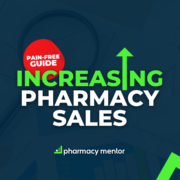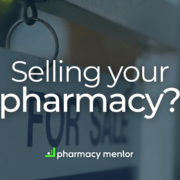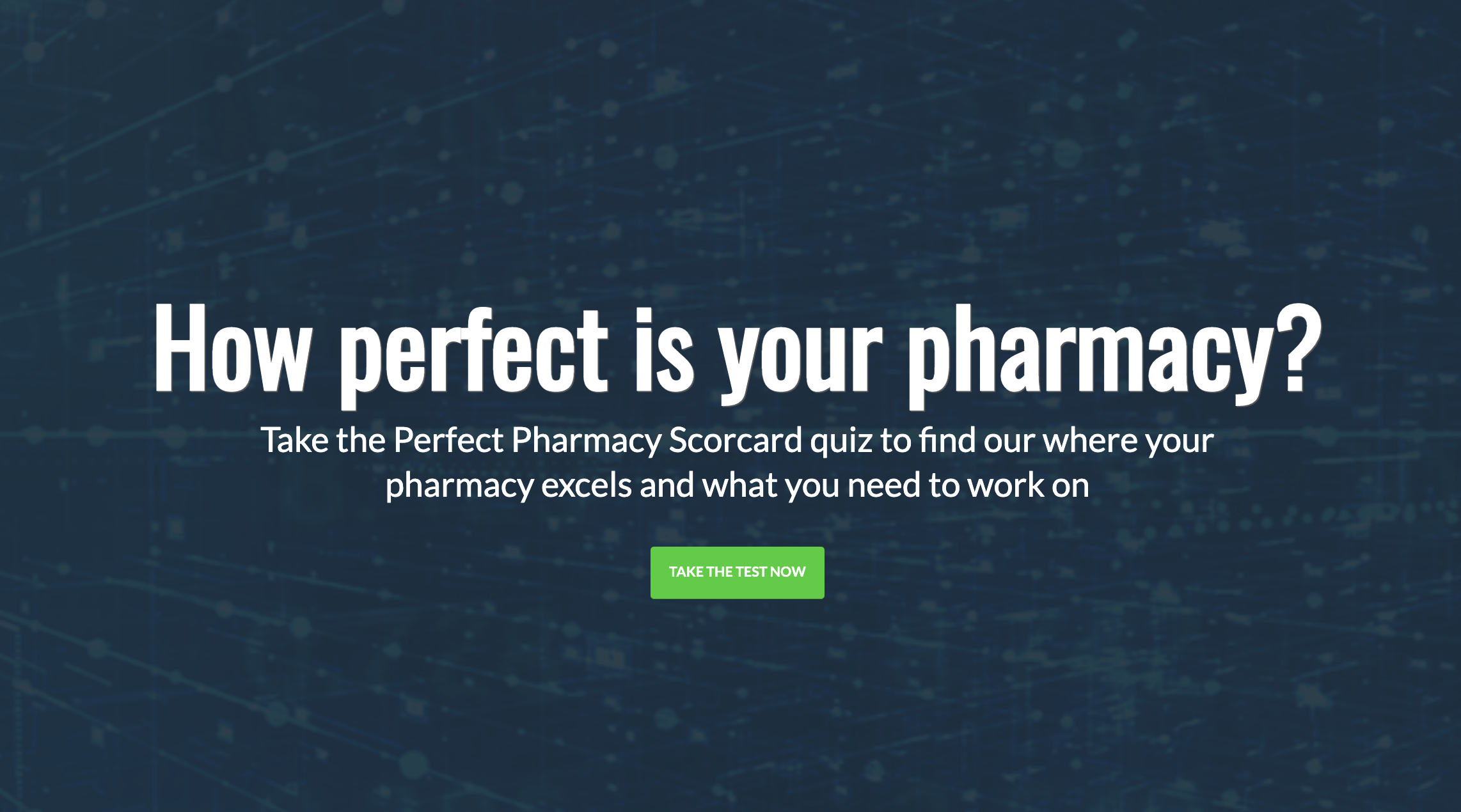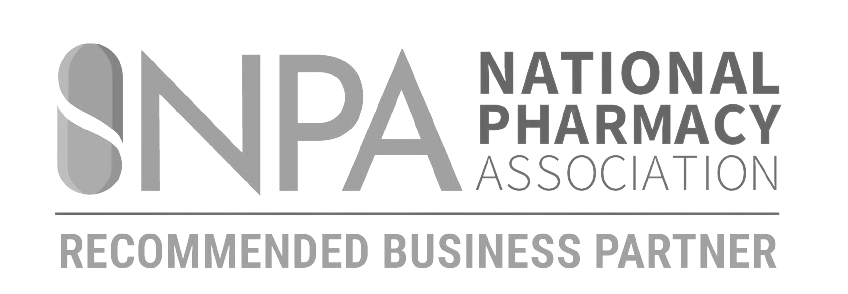Every conversation in your pharmacy is an opportunity for helping patients further. The more you know about the patient, the better your service gets. This guide explores the best ways for better serving your patients and increasing your revenue in the process

Increasing pharmacy sales requires talking, exemplified no better than market traders whose dialogue with customers is paramount.
Increasing Pharmacy Sales with your existing patients
A question that’s on practically every pharmacy owner’s lips right now is, “How can I increase the revenue and profitability of my pharmacy?”
There are many ways of doing this, and you should browse around similar guides we’ve written on our blog. We usually focus on how digital marketing helps achieve more sales and improve your workflow.
However, in this article we’re going to examine the tactics you employ on the pharmacy floor. You don’t need any new patients for this, you simply need an open mind for a new approach to both cross-selling and upselling.
It’s important to note that at the heart of increasing revenue is great patient care, quality customer service and convenience. We never want to sell a patient anything unnecessary, and we wish to always remain ethical about what we sell.
The difference between Cross-Selling & Upselling
Cross-selling and upselling are both effective ways of increasing pharmacy sales, whether that’s through promoting services or recommending products.
An example of cross-selling is somebody visiting your pharmacy to collect their prescription and you or your pharmacy team recommending your ear health consultation or microsuction service.
Upselling is where somebody comes in to buy ibuprofen for their back pain, and they leave with a stronger, more effective painkiller or a heat pad for their back. These are more valuable, upgraded versions of the solution they’re already purchasing.
Balancing cross-selling with speedy service
Now, there are two natural enemies of uncovering patient’s problems: time and privacy.
Ideally, a patient isn’t in a rush and there’s no one behind them in the queue. The best time for these conversations would be during a consultation. Realistically however, the bulk of your interactions are at the counter.
So whilst it’s worth bearing in mind that, whilst someone is waiting alone in a pharmacy for their prescription, that’s a great opportunity to explore their other healthcare needs. You also need a tactic for when it’s busy.
6 Simple, Effective Questions for Counter Sales
Cross-selling and upselling in a pharmacy requires training and a good knowledge of your products and services. When our CEO, Saam, was at the coalface, he’d have a conversation with every single patient and customer that he possibly could, given how busy the pharmacy was at the time of course. It always started with a simple smile and:
“How are you doing today?”
Which is a great way to instantly develop a bond, and shows that you care. Without this essential first step, you’re unlikely to get the best conversation out of the patient and provide the best care.
We’ll provide additional information below each question, but just a foreword that these are recommendations for individual questions, not a full list of questions to ask people at the pharmacy counter. Also, we need to be sure that we’ve asked the usual WWHAM questions for safe and effective supply.
Have you considered using X and Y?
Often, patients come in and go straight to the counter asking for a specific medicine e.g. Day Nurse or Beechams. They have a cold and are feeling under the weather. 80% of pharmacies will sell the product that the patient will ask for, and that’s it. The rest however, will have had a great conversation with the patient and talk to them about:
- If they have any immune boosters, such as echinacea or Vitamin C with Zinc
- How the separate ingredients in the branded product can be bought separately e.g. Paracetamol and Ibuprofen at larger quantities for the same price
- How their sleep is right now that could be affecting their health
- What their diet is like perhaps
- If they’ve had the flu jab or not
With the right conversation and actively caring more about the patients’ health, you’ll be able to offer a more rounded, holistic approach to healthcare that will build trust in your patient. The side effect of this is more sales.
That’s why training your team on this is so important, as the pharmacist will be very busy in many circumstances. Every conversation or interaction is an opportunity to make more of a difference to someone’s health. What a great position to be in!
Would you like to book in for a free X whilst you’re here?
X can represent anything, but given that we’re offering it for free, it’s probably best sticking with things that are usually free anyway, such as Blood Pressure Checks or NHS Health Checks (if you’re in the UK). Whilst those checks themselves are useful for the patient, they also present opportunities for building the relationship further. As mentioned before, a consultation environment is a better environment than the counter for questions like the one below.
Is there anything else bothering you at the moment?
This question is ideal for cross-selling, and it also gives patients permission to talk about the things they often consider too insignificant for a doctor’s visit or put off getting advice about. Perhaps they’re stressed, perhaps they’re tired, but these are all openings for further questions and conversations, ultimately leading to you solving their problems.
You won’t open many doors for anything too personal at the counter with this question, but it’s great in a private consultation setting.
Are you going anywhere on holiday this year?
Depending on the answer, recommending various vaccines and travel necessities pharmacies offer becomes the natural next step.
Did you know you can get your flu jab here?
A simple question in the run-up to flu season, with an obvious cross-sell.
Utilising leaflets
Many pharmacies utilise leaflet-drops, delivering thousands of leaflets to their catchment area, and people might become aware of the service the pharmacy is promoting.
A more effective use of the leaflets (which you can use additionally if you’re still tied to leaflet drops) is having a small pile of them displayed in a stand on your counter.
Incorporating a leaflet into your conversation about the new service you’re cross-selling helps the patient digest (and perhaps later, remember) what you’re talking about.
P.S. Need a leaflet designing? Check out the Pain-Free Pharmacy Poster & Leaflet Designs in our shop.
Increasing Pharmacy Sales through incentivising employees
It’s amazing how money incentivises people. And this type of incentive works wonders in the pharmacy.
We’ve seen service sales skyrocket in pharmacies by those who have employed such tactic. One such pharmacy incentivised their team to earn:
- £5 for every patient that they got to leave a review for a pharmacy online
- £10 for every patient that they got to sign up to the weight management service
We couldn’t believe the numbers of Google reviews rolling in and their sales on weight management medicines i.e. Saxenda, steadily rose.
The more you incentivise your pharmacy team, the more they’ll work for the results you want. From your perspective, getting 50% of an increase in profit is better than 100% of no increase.
A real-world pharmacy application
Let’s take a classic example. A patient comes in for some sunscreen.
This is a great chance to spark a conversation:
HCA – “Are you going anywhere nice?”
Customer – “We’re off to Morocco”
HCA – “Oh lovely! Where about are you going? Have you considered…”
- Travel Vaccinations, such as Hep A, Tetanus, Rabies
- Diarrhoea capsules and hydration sachets
- Antihistamines
- Moquito repellant
- First aid kit
Every conversation can lead to better care for our patients and more revenue.
Your Attitude Matters
There’s a big difference between an insightful observation of someone’s needs and a generic recommendation that they probably overheard you giving the person before them in the queue.
One has a far higher likelihood of increasing pharmacy sales, and the other is arguably more damaging than it is useful.
Don’t diminish your reputation for profit
Telling everyone there’s a bar of Dairy Milk on offer for a pound might fly in WHSmith’s. But as a pharmacy, your word is your bond and requires nurturing. We’re healthcare professionals, not a general shop. Save your recommendations and advice for healthcare topics.
What should I cross-sell?
Whilst the answer to this question is generally, “whatever is relevant for the patient”, we think it’s important for Community Pharmacies to focus on healthcare.
It’s also largely situational for your specific services, the advantages your pharmacy holds, and where your focus is at any one time.
Think Prescription Collection Points, Late Night Pharmacies, clinics, whatever you’re currently under-subscribed for.
Have a focus, but remain flexible
At restaurants, waiting staff recommendations are usually the food where they’ve got loads of stock running out of date.
Now, I’m definitely not suggesting you start pushing nearly expired medicines on people! But it is worth thinking about what your next big push is. Is it shifting people onto EPS, is it filling up your Flu Clinic? Your larger business strategy should guide your upselling approach.
Just remember, remaining flexible, open and inquisitive ensures you’re always helping the patient.









